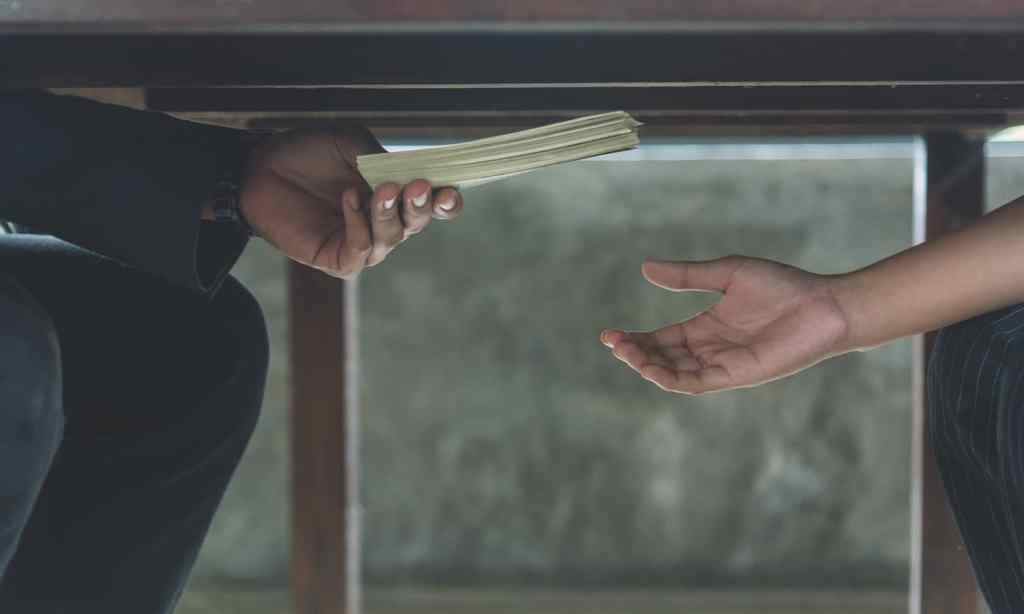An ICAC is not the latest high-tech offering from Apple — it stands for ‘Independent Commission Against Corruption’ and it’s what some analysts believe to be one of the best things we could do as a country to restore voter confidence in politics.
You might remember the ICAC from such classics as the resignation of Daryl Maguire and the resignation of Premier Gladys Berejiklian. Both politicians were brought down over findings of corruption by the watchdog that was established in New South Wales in 1988 precisely to hunt down corrupt conduct by government officials.
Each of Australia’s states and territories, barring NT, has its own form of the NSW ICAC, which was the first to be established and is considered the most robust. Variously referred to as ‘corruption commissions’ or ‘integrity commissions,’ their roles are largely the same; investigate and prevent corruption in politics and public services.
However, each of these bodies only has power over goings-on at a state or territory level and there is no such equivalent at a federal level.
With all the claims of pork-barrelling, rorting, and unsavoury dealings buzzing around our national politicians, it’s no wonder that the people with the responsibility to install a federal corruption commission have been dragging their heels over installing one.
In May, the matter of a federal corruption commission reached something of a boiling point and then continued to be a hot button issue throughout this year’s election cycle.
Here’s what you need to know about exactly what a federal corruption commission would look like, could do, and where the major parties stand on installing one.
What is a Corruption Commission?
Corruption commissions are one way of keeping the bastards honest. Australians, and the global population in general, have become increasingly disillusioned by politics. Every time another elected representative gets outed as having done something awful, we lose a little bit of our faith in the system.
It’s hard to know whether politics has always been a dirty game, or whether we simply get more information on it these days — our money is on both.
The main purpose of a corruption commission is to stop this slide into apathy; the feeling that they’re all the same and out for themselves.
Australia, as stated, has seven corruption commissions operating at a state level. These are independent bodies often led by chief commissioners who serve for five years. They are appointed by state or territory parliaments and have powers over government staff in those states.
It’s worth noting that only the NSW ICAC regularly holds hearings and is the only one that can make findings of corrupt conduct. Other state bodies have more limited powers and are not as well-financed which has long been a criticism of the system.
The commissions operate on reports, complaints, or suspicions of corrupt conduct and decide whether or not they are worth investigating. If they are, they have the power to call all government officials, including Premiers, to give evidence of events or dealings that they might have knowledge over.
State corruption commissions do not actually have the power to prosecute people. However, they can recommend that state law enforcement consider prosecution.
It’s assumed that a federal corruption commission would work much the same as the current state ones, with the power to call politicians to give evidence, investigate matters of corrupt conduct, and recommend charges against people found to have behaved inappropriately.
Will Australia Get a Corruption Commission?
The vast majority (67%) of the Australian public wants a federal corruption commission installed. Fortunately for those folks, Labor made an election pledge that they would install a far stronger National Anti-Corruption Commission within six months of forming a government. Theirs will hold public hears and release their findings. However, it remains unclear whether or not they deliver on this promise.
If Labor doesn’t end up creating a Federal ICAC, they wouldn’t be the first government to fail at keeping their word. The Coalition also made the establishment of a corruption commission an election promise in 2019, failed to deliver on that promise, and then blamed Labor for not accepting their proposals.
The corruption commission the Coalition proposed, it should be noted, would not hold public hears or release its findings. It also had a very high bar for what is considered corrupt conduct and the government never introduced legislation supporting it into parliament.
The NSW ICAC has brought down three state Premiers — all of them Liberal. We’re sure that’s unrelated to the fact that the Liberal party seems so reluctant to install a federal commission, but we’ll let you be the judge of that. When Gladys Berejiklian was forced to resign, Morrison and the Coalition heavily critiqued the independent body and then continued to do so on the campaign trail.
The Australia Institute, a think tank that has long called for a federal corruption commission, has laid out what it sees as the ideal model for such a body. It includes similar powers to a Royal Commission, a broad jurisdiction, and full government funding.
Ben Oquist, executive director of the Australia Institute, has said that “a federal anti-corruption watchdog won’t fix democracy but it is a prerequisite to a healthy functioning one.”
Let’s just hope that Labor keeps this election promise of theirs. And if they become reluctant, let’s ramp up the public pressure until they cave.
Read more stories from The Latch and subscribe to our email newsletter.







